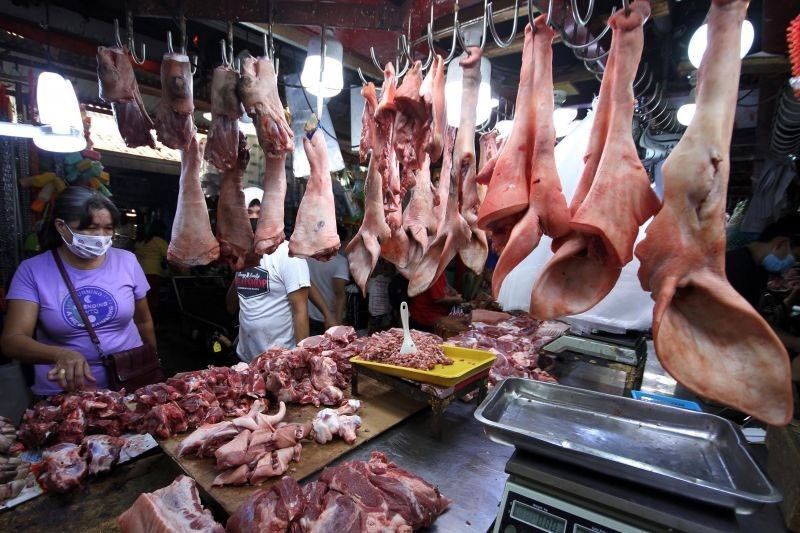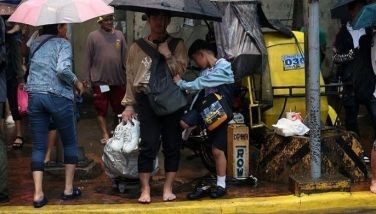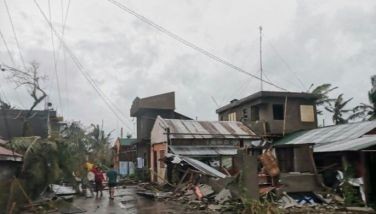‘Pork cartel stands to make up to P60 billion from MAV hike’

MANILA, Philippines — Only a cartel of pork importers would profit by as much as P60 billion from the Duterte administration’s move to lower pork prices by raising minimum access volume (MAV) and lowering tariffs on importation, senators and experts warned yesterday.
They also said the moves would not necessarily reduce the prices of pork, but would instead lead to the collapse of the local hog industry.
The warning was raised at the resumption of the Senate committee of the whole inquiry into alleged corruption in the country’s pork imports, where Finance Secretary Carlos Dominguez III defended President Duterte’s Executive Order 128 that lowered pork tariffs, saying it was a temporary measure to contain rising pork prices and involuntary hunger.
“It is not a question of smuggling or anything. It is because of shortage, and bringing in more supply would stabilize and bring down the price of pork and therefore, the inflation rate,” Dominguez told the inquiry even as he likened the economy to a house being battered by a once-in-a-century super typhoon that is COVID-19.
When questioned by Senate President Vicente Sotto III as to why the MAV for pork is being raised to some 400,000 metric tons, which is much higher than the 100,000 MT recommended by the hog industry and experts at the Department of Agriculture (DA), Dominguez retorted: “Nobody’s forcing people to import 400,000 MT (of pork).”
“If there’s no demand as they claim, the pork will not come in. Believe me, if I were an importer, why would I bring in pork if cannot sell it? Trust the market, the market will determine the price,” he said.
Sen. Cynthia Villar, who chairs the committee on agriculture and food, told Dominguez that the Philippine market is not “perfect” and “just because you have good policy, it will happen.”
“There’s always a cartel in the Philippine market place. Do not underestimate the cartel of importers. Even if the price is low – and they (cartel members) all know each other – they will control the price,” Villar said.
“They have long been importing and selling pork, why have they not reduced the price? It’s not just about supply and demand,” she told Dominguez.
Villar and Sen. Panfilo Lacson, whose resolution triggered the convening of the all-member committee, said the same 10 traders have been favored by the DA in the issuance of import permits.
And yet, despite digging into the background of the said companies, Villar said she could not find the real owners of the firms, as if they are intentionally concealing themselves.
The senators and the local hog industry maintained they are not against raising pork imports but only to around 100,000 MT on top of the 54,000 MT allowed under the MAV, even as they strongly oppose any reduction in tariffs.
Sen. Joel Villanueva presented data showing that previous increases in pork importations did not lead to corresponding reductions in prices.
Sen. Grace Poe challenged the DA to regain the trust of hog raisers by working together towards long-term instead of band-aid solutions.
“There’s much trust that was lost between the DA and its stakeholders that really needs to be rebuilt. I think this is a fundamental factor that will enable the success of any future endeavor,” Poe said.
Poe described the DA and the Bureau of Customs’ inspection of meat at the borders as “porous,” which resulted in a devastating three million pigs lost to the ASF.
“There will be instances when things like this will happen again. I hope that the answer is not always to allow certain sectors to get away with so much profit at the expense of the income that can go to the government which can very well be spent on other programs that are needed for our countrymen,” she said.
At the hearing, Dominguez said the spike in meat prices this year has unduly jacked up food inflation, thus exacerbating the problems of unemployment, hunger and reduced or lost incomes.
The situation, he said, has led many Filipinos “to line up at community pantries at dawn.”
He said that while EO 128 appears to be a painful solution as it would lead to a revenue loss of P13.68 billion for the government, this would actually slash pork prices to a level estimated to save Filipino consumers a whopping P67.38 billion.
“The worse we could do in a situation like the one we are facing today is to let supply issues force food prices up even more. If food prices rise, the inflation rate also increases. If the inflation rate rises, interest rate increases will follow. This unhealthy chain of events will make economic recovery even more difficult for all,” he said.
The local hog industry has sustained some P80 billion in losses so far due to the onslaught of the African swine fever (ASF). Experts claimed this was caused by contaminated imported meat and compounded by the DA’s gross mishandling of the spread of the disease.
Under the EO, the tariff on pork imports under MAV quota is reduced to five percent for the first three months of the order’s validity and to 10 percent for the fourth to 12 months.
For imports outside the MAV, the duty is reduced to 15 percent for the first three months and 20 percent for the fourth to 12th month of EO’s effectivity.
Nicanor Briones, vice president of the Pork Producers Federation of the Philippines, said the pork demand projections of the DA and the National Economic and Development Authority (NEDA) were grossly erroneous, given the fact that people are spending less due to lack of income.
Furthermore, there are restrictions on various gatherings and celebrations as well as the closure of restaurants and hotels and the drop in tourist arrivals.
He said the revenue loss for the government due to lower tariffs, which could have been used to assist the industry, would only go to the pockets of importers, who would earn not less than P60 billion and up to P90 billion.
Briones said imported pork costs around P99.60 per kilo, and with the reduced tariff, it would be around P139 per kilo. But the same pork is sold at P270 to P300 per kilo, so importers earn at least P118 per kilo.
Chester Warren Tan of the National Federation of Hog Farmers accused the DA of data manipulation to justify the agency’s “premeditated efforts” to increase the MAV.
Tan said the importation of 400,000 MT of pork would surely flood the market and wipe out the remaining struggling players in the local industry.
“Moreover, the excess quantities will surely find its way to the Visayas and Mindanao region, which we have seen in the past. At this moment, these two regions with 42 percent of the total Philippine population are still having a surplus of pork production, and this is the real concern of our farmers,” he said.
Agriculture Secretary William Dar denied there was manipulation of data, stressing that projections are based on Philippine Statistics Authority data and on DA’s own analysis.
“I would like to take exception that we are manipulating data. That’s not our work. We are basing our data based on PSA and our analysis,” Dar said. – Paolo Romero
- Latest
- Trending




























